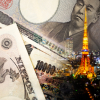Insights
Navigating Japan Equities: Monthly Insights from Tokyo (June 2023)
This month we discuss the factors behind the Nikkei’s rise to a 33-year high; we also assess Japan’s opportunity to re-invent itself as a technology hub with leading global chipmakers bringing investments and manufacturing to its shores.
Global Equity Quarterly (Q1 2023)
At times of stress, we believe that it makes sense for investors to reach for something that has recently provided comfort. Our view is that that is exactly what we have seen in Q1, as banking stock volatility has led investors back into the technology sector. Q1 is now behind us though and is often a time of the year characterised by mean reversion such as we saw in 2022.
Global Unconstrained Bond Strategy Q2 2023 outlook
We present our Q2 2023 outlook for the Global Unconstrained Bond Strategy which incorporates our core markets, emerging markets and global credit views.
The long-held theme of this report (since 2006) that profit margins remain on a structural uptrend, despite sluggish domestic GDP growth, still holds and domestic and international investors finally realise that Japanese corporations are delivering solid profits and shareholder returns, with the increased expectation that such will likely continue over the intermediate term.
Future Quality Insights -May 2023-A bridge over troubled waters
Life is different in the post-pandemic world. Equity markets and economies are different too; geopolitics have deteriorated and barriers to trade have increased while the threat of global warming looms ever larger. In this short essay, we attempt to bring some perspective to this while giving a view on where we are in markets today and what might happen next.
Exploring fast-growing Asian REITs
Asian REITs continue to be one of the fastest growing asset classes in the region, offering decent yields, a sustainable income stream and exposure to the region’s biggest landlords.
On the Ground in Asia-Monthly Insights: Asian Fixed Income-April 2023
China’s re-opening and supportive policy tone may continue to provide a critical counterweight to global macro weakness. Macro and corporate credit fundamentals across Asia ex-China are also expected to stay robust.
A fundamental change for AI?
As the exponential growth of machine learning kicks in, we believe that big technology companies with the first mover advantage in AI and high-end manufacturers of AI-focused hardware and microprocessors, notably Asian players, are in a position of advantage.
Navigating Japan Equities: Monthly Insights from Tokyo (May 2023)
This month we discuss how Warren Buffett’s focus on Japan has put the country’s market back on investor radars and how it could be a chance for companies to disseminate meaningful information; we also analyse the TSE’s surprise “name and shame” tactic with listed companies.
Financials, healthcare and energy buck the trend and rise in a down market.












